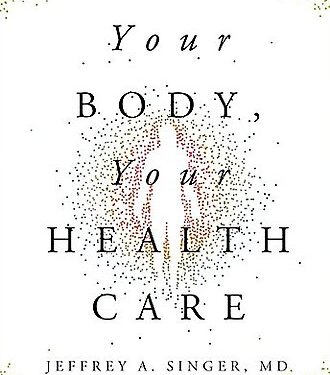Below is an excerpt of the new book Your Body, Your Health Care (Cato Institute 2025) by Jeffrey A. Singer, MD, a senior fellow in Health Policy Studies at the Cato Institute, a practicing surgeon, and a fellow of the American College of Surgeons.
INTRODUCTION
As a general surgeon, when patients consult me for health problems and I determine that an operation would help solve their problem, I explain, in plain English and avoiding medical jargon, what the operation entails. I tell them why the operation is necessary to solve their problem. I tell them the risks and benefits of the procedure and make them aware of the pros and cons of surgical and nonsurgical alternatives to the proposed operation. I don’t proceed to operate without their informed consent. While I do all this out of respect for my patients’ autonomy, my profession’s ethics also require me to do this. Nowadays, civil tort case law requires it as well.
The doctrine of “informed consent”—that individuals have a right to refuse whatever medical or surgical treatment they choose, even if doing so will harm them—is a relatively modern development. A little over 100 years ago, society commonly accepted that doctors could do whatever they perceived was in the best interests of their patients, regardless of a patient’s wishes or priorities.
Things began to change in 1908 when Mary Schloendorff, a patient at New York Hospital, consented to a diagnostic examination under anesthesia for a suspected uterine tumor. She explicitly stated that she did not want to undergo an operation while under anesthesia but instead wanted to discuss the findings with the doctor and later decide about surgery. Despite her instructions, the examining surgeon diagnosed a uterine fibroid tumor and proceeded to remove it. Schloendorff subsequently sustained postoperative complications that ultimately caused gangrene in her left arm, which required surgeons to amputate several of her fingers.
Schloendorff sued the Society of New York Hospital for assault and won on the merits. After the defendants appealed the decision, New York Appeals Court Judge Benjamin Cardozo (later a US Supreme Court Justice), in 1914, wrote for the majority:
“In the case at hand, the wrong complained of is not merely negligence. It is trespass. Every human being of adult years and sound mind has a right to determine what shall be done with his own body; and a surgeon who performs an operation without his patient’s consent, commits an assault, for which he is liable in damages. This is true except in cases of emergency where the patient is unconscious and where it is necessary to operate before consent can be obtained.… [Schloendorff] had never consented to become a patient for any purpose other than an examination under ether.… she had forbidden the operation.”
It took decades for informed consent to become a hallmark of medical ethics. Even into the 1970s, many doctors admitted to withholding terminal cancer diagnoses from their patients. Nowadays, the patient-doctor relationship has largely shifted from one of medical paternalism and patient acquiescence to what bioethicist Daniel Sokol calls a “leveled partnership” in which the medical profession respects patient autonomy and the government punishes providers who violate the doctrine of informed consent.
While informed consent and respect for autonomy govern how health care practitioners interact with their patients, this new ethos is absent when it comes to the government asserting authority over adults’ health decisions. The government dictates what kinds of health professionals adults may consult. It determines what medicines adults may purchase and under which circumstances they may consume them. It bans adults from ingesting substances or engaging in activities that the government decides are unhealthful, regardless of individual risk-benefit priorities. It does all this because the government assumes it knows what is in adults’ best interest. In summary, every day the government treats all adults the way that Mary Schloendorff’s doctors treated her.
In the following pages, I want to inform you about how lawmakers and policymakers at all levels of government have failed to heed Judge Cardozo’s pronouncement that “every human being of adult years and sound mind has a right to determine what shall be done with his own body.” I hope to expose the harmful unintended consequences of this paternalism. Finally, I want to point out roads leading to a future where the government respects the autonomy and rights of all adults.
To obtain a copy of Your Body, Your Health Care, click here.
















